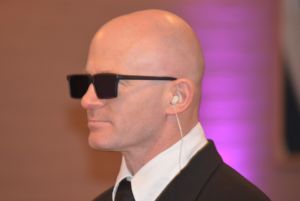
The U.S. Secret Service is an elite law enforcement agency trusted to investigate financial crimes. It’s probably best known for its responsibility to protect the President of the United States and other important officials. However, despite being such an honored and respected agency, the Secret Service hasn’t had the best track record with respect to its treatment of African-American officers and agents. The agency has a long history of race discrimination, which a relatively recent lawsuit has brought into the spotlight.
Table of Contents
ToggleAlleged Discrimination at the Secret Service
The U.S. Secret Service hired Reginald “Ray” Moore in 1984. Moore, who is African American, became one of the Secret Service’s best agents, eventually earning his way to be the lead agent on President Bill Clinton’s protective detail.
Given Moore’s exceptional performance, it wasn’t surprising that he received multiple promotions. However, when he applied for more prestigious and higher-ranking positions, he was repeatedly denied the opportunity. In all, Moore was denied promotions approximately 180 times over his decades-long career with the Secret Service.
Often, these promotions went instead to white agents with fewer qualifications, less experience, and an inferior performance record. There were instances where Moore trained agents who went on to quickly get promotions that Moore was denied. In one case, Moore’s manager consoled him on yet another promotion rejection by saying, “It’s the Secret Service way, so we have to live with it.”
 Moore finally decided he could no longer live with it. In 2000, he filed a complaint with the Equal Employment Opportunity Commission (EEOC). When the EEOC was unable to reach an amicable resolution, Moore and a handful of other agents filed a civil lawsuit alleging race discrimination in violation of Title VII of the Civil Rights Act of 1964 and the Civil Rights Act of 1991. During the course of litigation, the rampant racist culture of the Secret Service was uncovered.
Moore finally decided he could no longer live with it. In 2000, he filed a complaint with the Equal Employment Opportunity Commission (EEOC). When the EEOC was unable to reach an amicable resolution, Moore and a handful of other agents filed a civil lawsuit alleging race discrimination in violation of Title VII of the Civil Rights Act of 1964 and the Civil Rights Act of 1991. During the course of litigation, the rampant racist culture of the Secret Service was uncovered.
For example, senior Secret Service agents and supervisors exchanged e-mails about lynching and made derogatory comments and jokes about African Americans. There were countless instances of African-American agents receiving less-than-desirable assignments and lower pay. Complaining about this race discrimination led to blatant retaliation.
Moore experienced such retaliation firsthand when someone in his office sent an anonymous letter falsely accusing him of misusing the Secret Service’s office equipment for his lawsuit. Although these allegations were proven to be unfounded, Moore could see that he was going to face an ugly, drawn-out legal battle.
Even by 2008, when the lawsuit was well under way, the Secret Service continued to play hardball. At one point during the discovery process, the Secret Service refused to produce documents. The agency’s behavior reached such a low point that a federal judge declared that it was making a “mockery” of the judicial process. That judge imposed severe punishments that are very rarely handed down, especially against the government.
Over the course of Moore’s lawsuit, many other African-American Secret Service agents came forward with similar stories of discrimination based on their race. The number of plaintiffs eventually totaled over 100, and Moore’s lawsuit reached class action status in 2013. Before the case even settled, Moore’s efforts were yielding positive results, as the number of promotions for minorities and women began to rise within the Secret Service.
Settlement
In January 2017, more than 16 years after Moore initiated his lawsuit, the Secret Service agreed to settle all claims for $24 million. Moore and the other seven original plaintiffs were each to receive a $300,000 lump sum payment as compensation for pay that they lost due to denied promotions. Other plaintiffs were to receive smaller settlement amounts.
As part of the settlement, the Secret Service admitted no wrongdoing. It did, however, agree to modify its promotion procedures, create a discrimination hotline, and set up a system to track race-based complaints regarding promotions.
To find out more about discrimination laws enforced by the EEOC, including the laws that served as the basis for Moore’s lawsuit, please read the “Laws Enforced by the EEOC” page of its website.
Summing It Up
- Even storied, respected, and elite employers are capable of systematic and severe discrimination.
- While settling a discrimination lawsuit after 16 years is not the norm, plaintiffs need to understand that it can take years to resolve a lawsuit, even when they have clear and plentiful evidence of discrimination.
- One tactic sometimes used by defendants, such as the Secret Service in Moore’s case, is to try to “wait out” plaintiffs until they give up on their lawsuits or settle their cases for far less than they are worth.
If you have experienced discrimination in the workplace, please contact our office. We would be happy to help you understand your rights and decide what to do next—even if it might take years.






